APARTHEID DEATHS OP-ED
Reopened inquest into death of Imam Abdullah Haron casts major doubt over first inquest findings
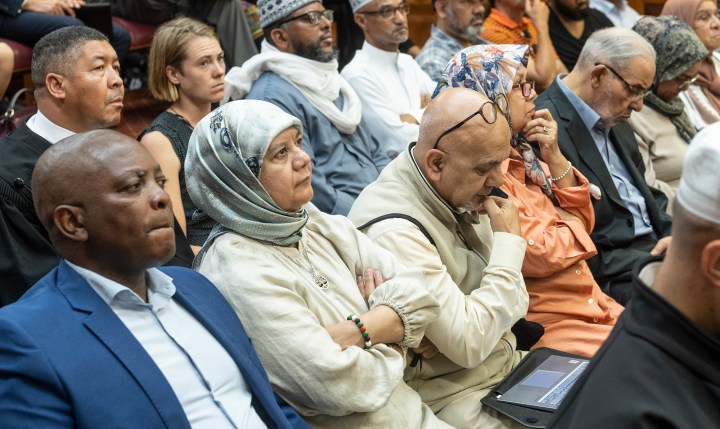
Forensic pathologist Dr Steve Naidoo said that the severe bruising Imam Abdullah Haron had suffered in detention was likely to have been caused by repetitive kicking, punching and assault with instruments such as a police baton.
Last week in the Western Cape High Court, a historic event unfolded. Judge Daniel Thulare was tasked with hearing the reopened inquest into the death of Imam Abdullah Haron, an anti-apartheid activist and religious leader who died in police custody in 1969.
The first inquest into Haron’s death, which took place in 1970, concluded that he died from myocardial ischaemia (narrowing of the arteries leading to the heart), contributed to by a fall down a set of stairs while he was in police custody. However, Haron’s family believed and continue to believe that he was tortured and killed by Security Branch officers.
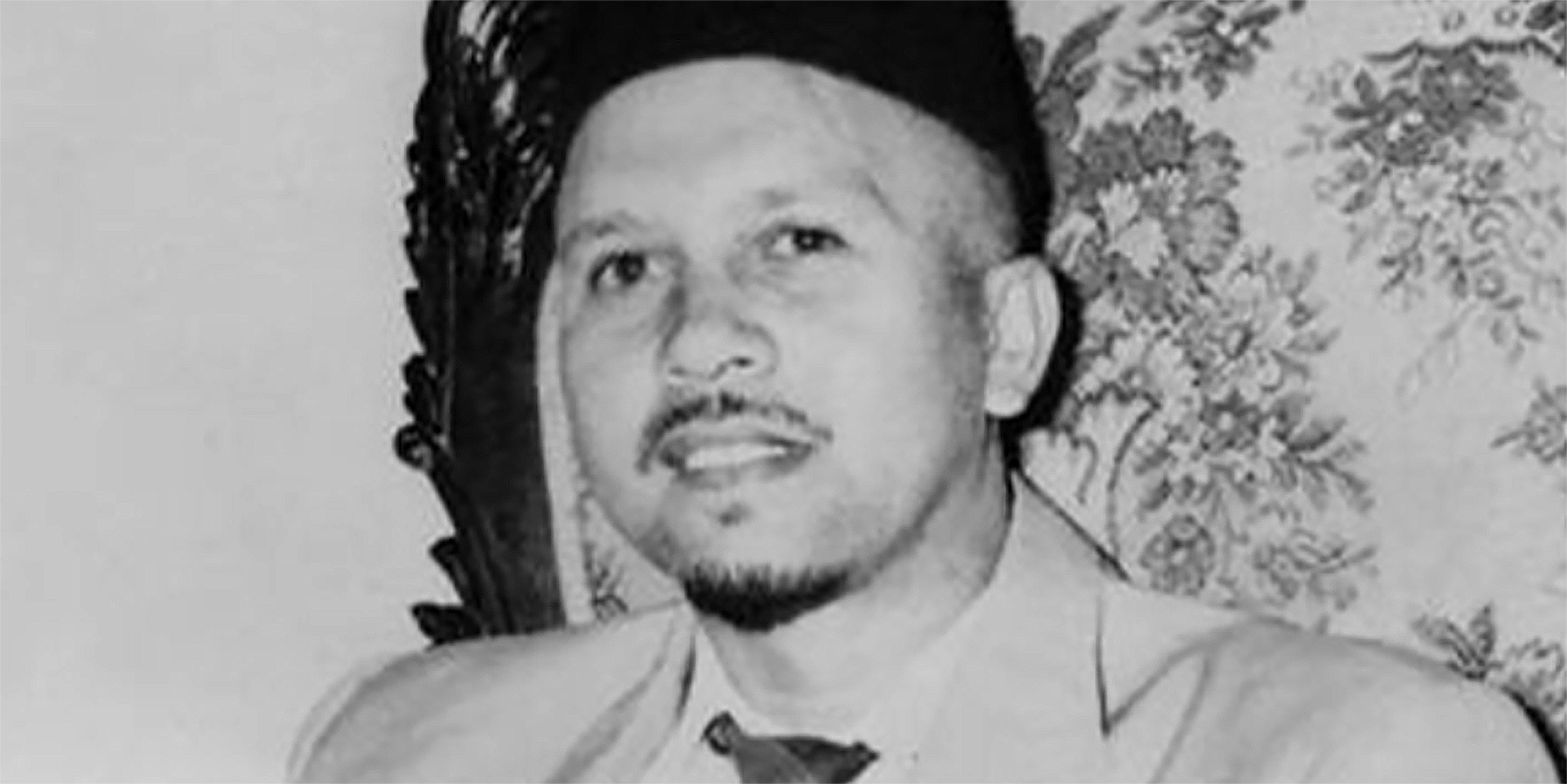
Imam Abdullah Haron. (Photo: Supplied)
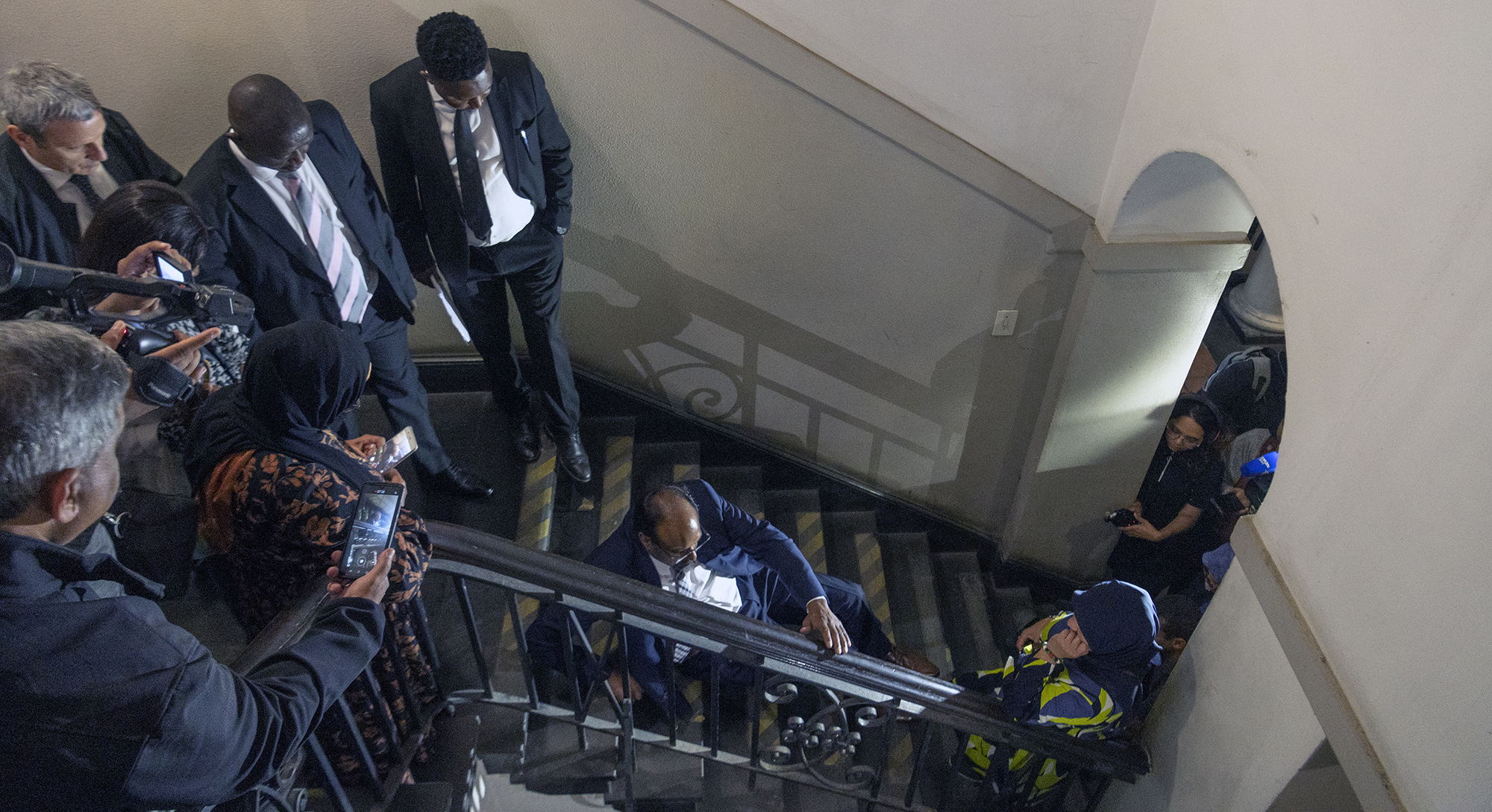
Aeronautical engineer Thivash Moodley shows the stairs at Cape Town Central Police Station (formerly Caledon Square) where Imam Haron was badly injured in a fall. (Photo: Gallo Images / Brenton Geach)
The reopened inquest took place as a result of the Haron family’s tireless campaigning for justice. However, the cogs of the post-apartheid state moved slowly. By the time the reopened inquest took place, all the Security Branch officers who interrogated Haron had died.
Haron’s three children attended the hearing, but Haron’s wife, Galiema Haron, did not get her day in court. She died on the 50th anniversary of her husband’s death in 2019.
The case has now been adjourned to early 2023 for closing arguments to be made.
What is the purpose of hearing such a matter over half a century later? And is it too late for justice to be served?
What is an inquest?
An inquest is an investigation to determine the cause of a person’s death and whether anyone can be held responsible for it. Where an inquest indicates that the death came about as a result of a criminal act, the case will be sent to the National Prosecuting Authority (NPA) to consider whether a prosecution should be started.
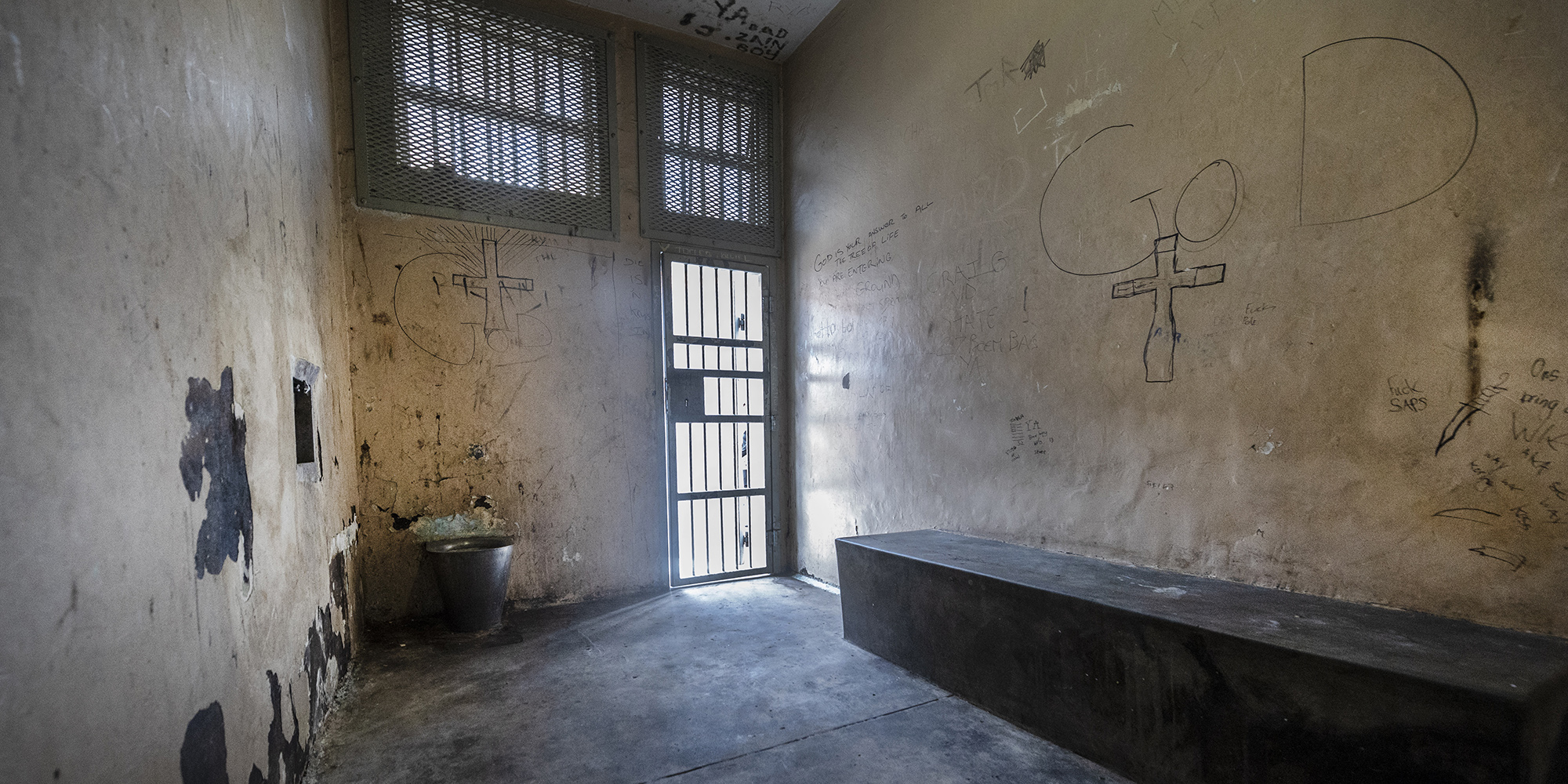
The cell at Maitland Police Station where Imam Haron died. (Photo: Gallo Images / Brenton Geach)
An inquest can be reopened where a fresh hearing is in the “interests of justice”.
Several other reopened inquests have taken place in respect of political detainees who died in custody during the apartheid era, including Ahmed Timol, Neil Aggett and Dr Hoosen Haffejee.
Wasn’t this what the TRC was for?
The Truth and Reconciliation Commission (TRC) did not grant amnesty in all cases. In certain cases, the TRC made a finding that human rights violations occurred, and forwarded the matter to the NPA for further investigation.
Imam Haron’s case, among about 300 others, fell into this category. However, upon receipt of these files, the NPA sat on its hands.
Between 2003 and 2017, all investigations into apartheid-era human rights violations by the NPA were stopped “as a result of an executive decision taken at a high level”.
Prosecutors who spoke out, or tried to progress the cases, were intimidated or dismissed from their positions.
It is unclear why this political interference took place.
What is clear is that it has created what James L Gibson describes as a “justice deficit” whereby the lack of accountability for the wrongs of the apartheid regime has damaged the legitimacy of the democratic South African state.
Setting the record straight
The reopened Haron inquest heard key expert evidence which cast into question the findings of the first inquest.
The court held an in loco inspection at Cape Town Central Police Station (previously known as Caledon Square), to look at the flight of steps that Imam Haron allegedly fell down. Dr Thivash Moodley, an aeronautical engineer, explained the probable trajectory of the Imam’s fall based on the witness accounts given by the Security Branch officers at the first inquest.
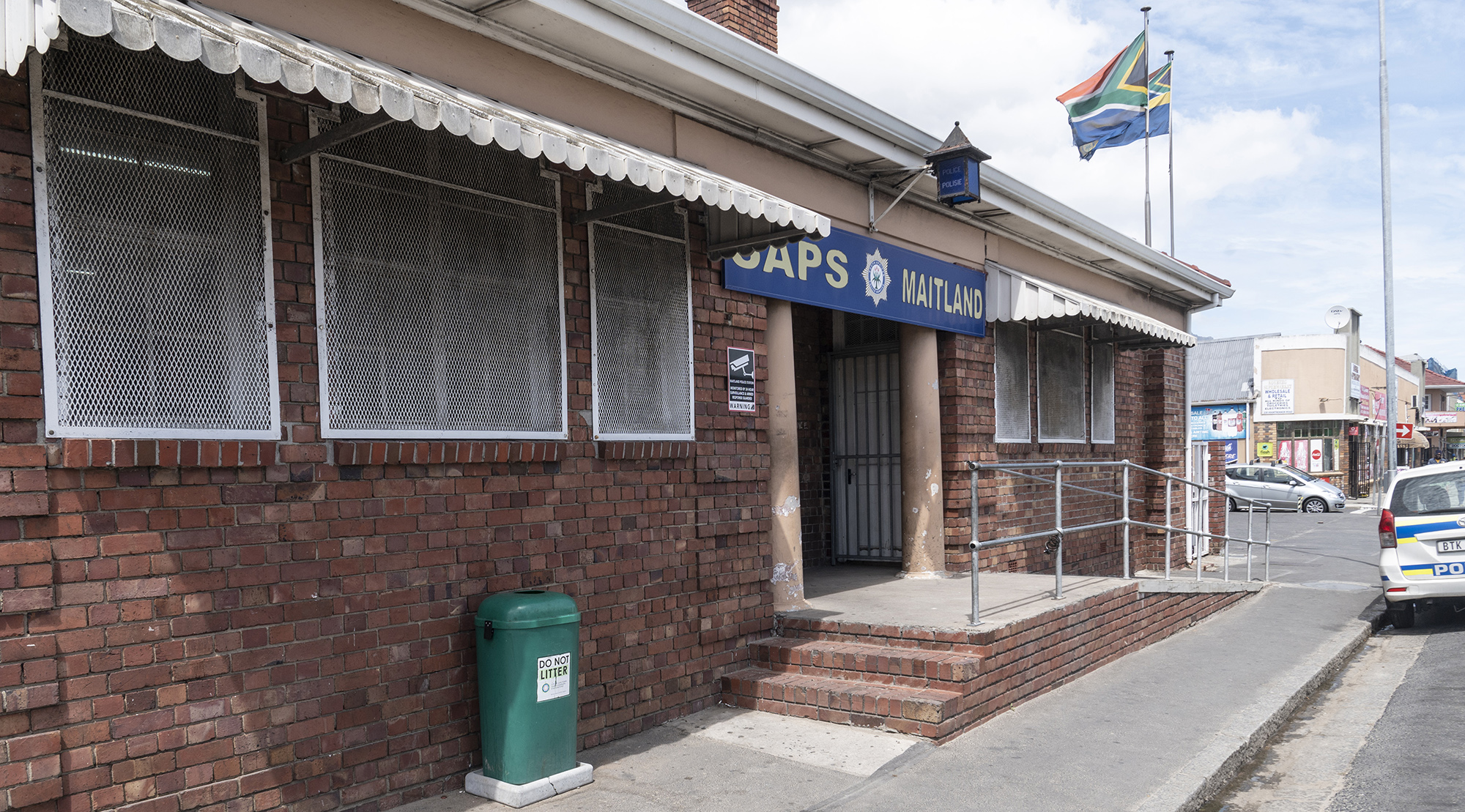
Maitland Police Station in Cape Town on 8 November 2022, where Imam Haron died on 27 September 1969. Cape Town Central Police Station (formerly Caledon Square Police Station) and Maitland Police Station are the two police stations where Imam Haron was tortured. He was found dead in his Maitland cell. (Photo: Gallo Images / Brenton Geach)
The court then heard from two separate expert forensic pathologists, Dr Itumeleng Molefe and Dr Steve Naidoo. The pathologists found it highly improbable that the imam sustained the extensive bruising noted on his post-mortem report from such a fall.
Both experts were highly critical of the post-mortem conducted for the first inquest.
Key investigations which could help determine the cause of death — such as checking kidney function — had not been completed.
The forensic pathologists noted the bruising that Imam Haron had suffered was so severe that he could have died from health complications arising from it.
Dr Naidoo opined that the bruising was likely to have been caused by repetitive kicking, punching and assault with instruments such as a police baton.
What could justice mean in the Haron case?
Throughout the reopened inquest, Haron’s children, Shamela Shamis, Muhammed Haron and Fatiema Haron-Masoet, sat attentively in the court. All three share the kind and humble facial expression discernible in pictures of their father.
Each gave their own moving testimony regarding what their father had meant to them; the impact of losing him, the steps that they have taken to continue his legacy of social justice, and what a fair outcome in this case would look like to them.
Muhammed and Fatiema asked the court to replace the findings of the first inquest with an accurate version of events. They also want the untruths within the previous inquest findings to be explicitly stated.
They hope that Security Branch members, even after their death, could be found guilty of intentional torture and calculated murder.
They ask that the magistrates and medical professionals involved during the time of Haron’s detention and initial death investigation be stripped of their qualifications for having compromised their oaths of honesty.
Visit Daily Maverick’s home page for more news, analysis and investigations
Fatiema also suggests that their names should be listed publicly, they should be shamed, and their family pensions should be withdrawn. You can read their full statements here.
Some of these requests are beyond the powers of the high court. In the inquest findings, the court will state the cause of death and whether this was caused by a criminal act.
Where a suspect is deceased, no criminal prosecution can take place, therefore convictions for torture or murder would not be a possible outcome.
Under the Inquest Act, the court does not have the power to order the posthumous stripping of qualifications or pensions. However, it is possible that stating these hopes publicly could lead to concessions in the political sphere.
What can reopened inquests achieve?
In addition to correcting the public record in respect of the way in which a person died, reopened inquests can contribute to accountability for historic crimes.
The reopened inquest into the death of Ahmed Timol found that Timol had been thrown out of a window at John Vorster Square. This led to a Security Branch officer, João Rodrigues, being prosecuted for murder.
Rodrigues fought unsuccessfully to stay the prosecution on the basis that he was prejudiced by the delay in bringing the case. The prosecution continued, but Rodrigues died before it had concluded.
The death of suspects — effectively denying the possibility of retributive justice — is one of the major problems with delaying the reopening of inquests.
In spite of these risks, it is not unusual for governments to prevaricate over reopening inquests. To give an example from a different political context, the “Ballymurphy Massacre” in Northern Ireland took place in 1971. Ten civilians were shot dead by British armed forces during the sectarian conflict. There was no proper investigation by the British Army at the time, prompting allegations of a cover-up.
The initial inquests, held in 1972, returned open verdicts. The reopened inquest, which concluded in 2021, found that nine of the 10 individuals were shot dead by security forces and that all were unarmed civilians, and not dangerous political dissidents as previously alleged. The UK government has paid out an unspecified sum of compensation to the families.
The possibilities of prosecution and compensation to the families of victims are compelling reasons in favour of reopening inquests, even half a century later. But there is another argument for why rehearing these historic matters is worthwhile. Allowing cases to fall away because of delays, political interference and denials plays into the hands of the structural oppressors.
As the Khulumani Support Group has suggested, “it is not perpetrators who should be announcing that it is time to move on from the horrors of a past that continues to live in the present. It is victims who should announce that time”.
When it comes to using the courts as a mechanism for correcting historical injustices, timing is crucial.
Michael Humphrey suggests that while truth commissions need to take place urgently, other avenues of redress can become appropriate as the political environment changes.
Hearing reopened inquests from apartheid-era crimes more than 50 years on poses unique challenges, such as the deliberate destruction of evidence, death of key witnesses and the opacity of the workings of the apartheid regime.
Nonetheless, could it be that society is only now ready to delve into these crimes?
Critically, perhaps the time is now ripe to contemplate the parallels of oppressive behaviour — such as the use of torture — within the modern-day South African state. DM
Jessie Waldman is a PhD student in the Faculty of Law at UCT, studying inquests. She has an LLM in Human Rights Law from UCT. She previously worked as a solicitor in the UK, specialising in human rights and civil liberties. She has done pro bono legal research for the Haron family’s legal team.















Comments - Please login in order to comment.